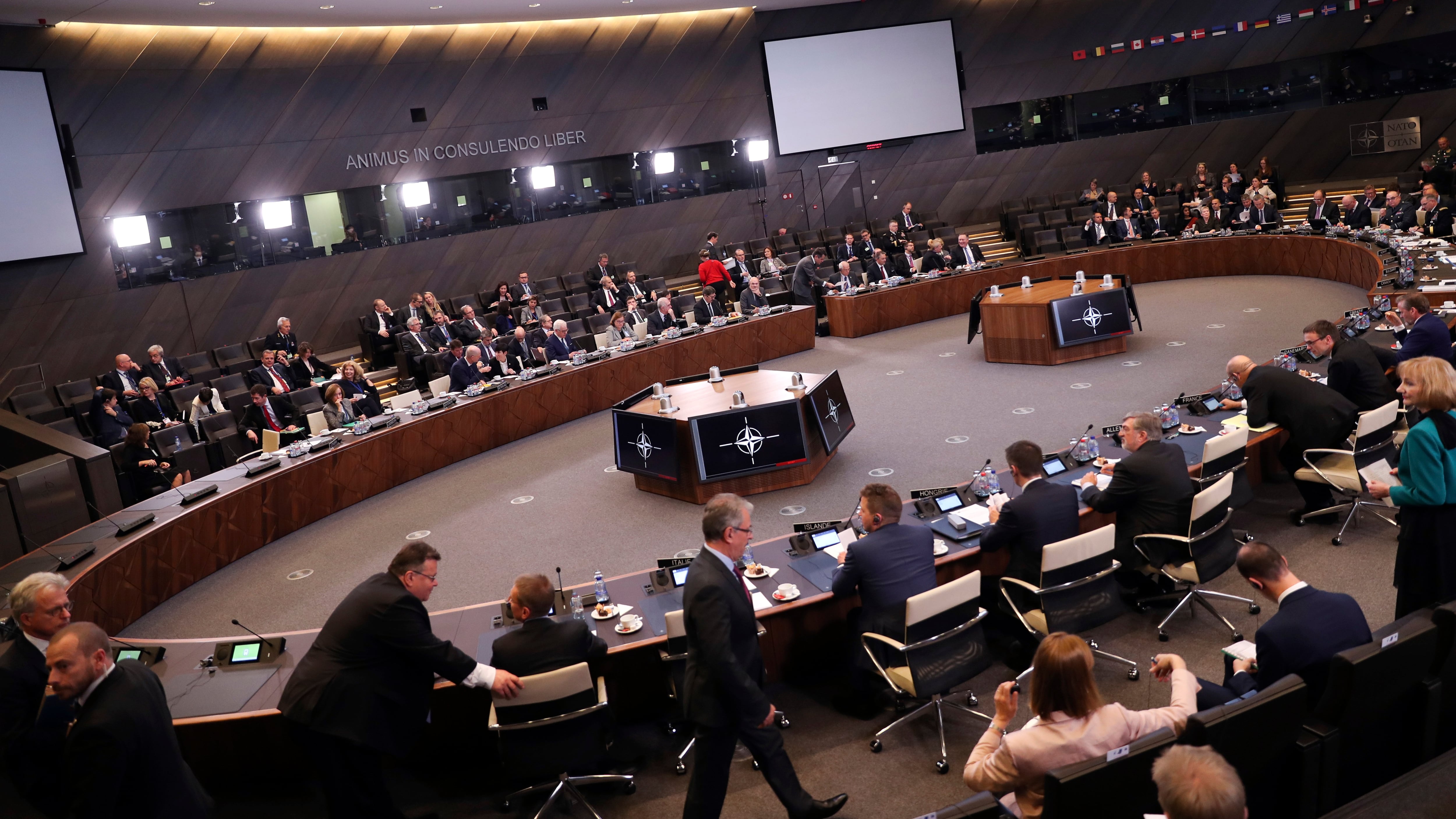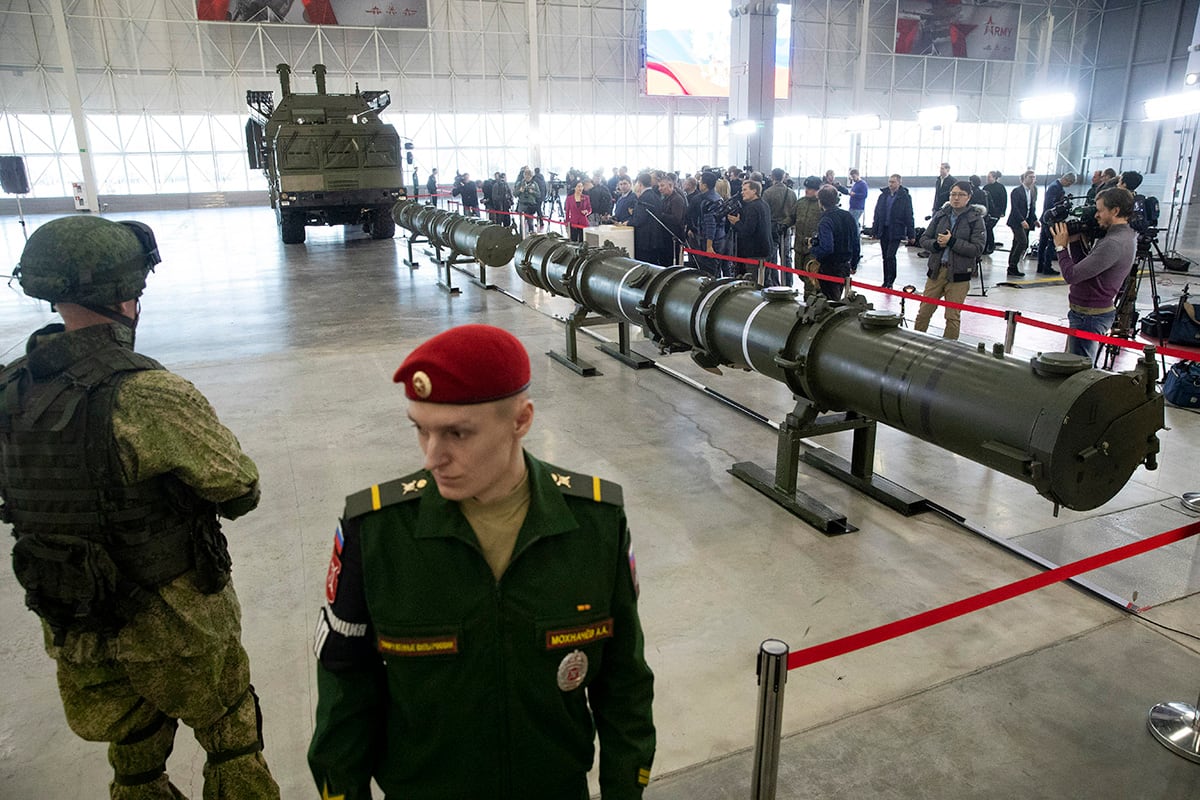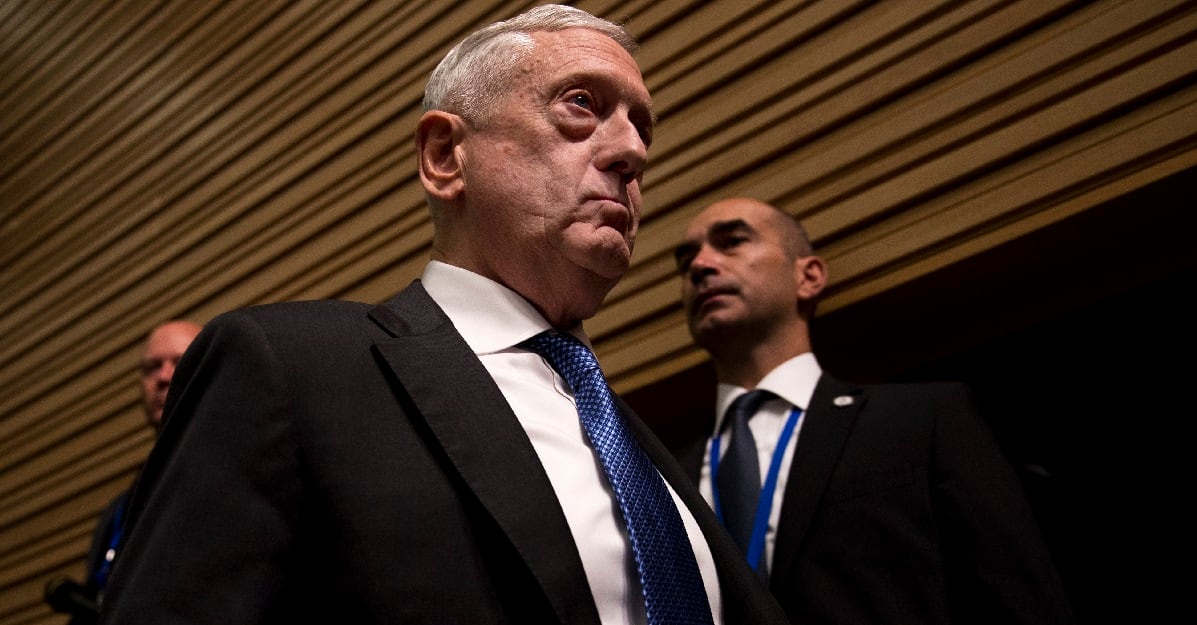MOSCOW — The Russian military on Wednesday rolled out a new missile and released its specifications, seeking to dispel the U.S. claim that the weapon violates a key nuclear arms pact.
The military insisted that the 9M729 land-based cruise missile conforms to the limits of the 1987 Intermediate-Range Nuclear Forces Treaty, firmly rejecting the U.S. claim that it has broken the pact by testing and deploying it.
The U.S. has announced its intention to abandon the INF, charging that the new Russian missile violates provisions of the pact that ban production, testing and deployment of land-based cruise and ballistic missiles with a range of 500 to 5,500 kilometers (310 to 3,410 miles). Washington said it will suspend its treaty obligations if Russian fails to come into compliance by destroying all of its 9M729 missiles by Feb. 2.
RELATED

Lt. Gen. Mikhail Matveevsky, the chief of the military's missile and artillery forces, said at a meeting with foreign military attaches that the new missile, which is part of the Iskander-M missile system, has a maximum range of 480 kilometers (298 miles).
He said that the 9M729 missile differs from the previous 9M728 model by having a more powerful warhead and guidance system that enhances its precision.
The general then took the military attaches on a tour of the missile along with its mobile launcher displayed at the military's exhibition center near Moscow.
Matveevsky insisted that the new missile's booster, cruising engine and fuel tank remain unchanged. He rejected the U.S. claim that the missile's increased length reflected a bigger fuel tank allowing a greater range, saying the size of the tank and the amount of fuel are identical to the older model.
The general noted that the new missile actually has a range 10 kilometers (6 miles) less than the older type due to heavier warhead and control systems.
Matveevsky particularly emphasized that the new missile can't be modified in field conditions.
He explained that the upgraded mobile launcher for the new type of missile is bigger because it carries four of them rather than the previous two.
Matveevsky noted that the presentation underlined Russia's "increased transparency and our adherence to the INF Treaty."
The Kremlin has staunchly denied the U.S. claim of Russian violations of the pact.

Deputy Foreign Minister Sergei Ryabkov noted Wednesday that the U.S. hasn't put forward any data to prove its claim that Russia has tested the missile at a range exceeding the treaty's limit. He said the U.S. ignored Moscow's offer to inspect the missile made during talks in Geneva earlier this month — a refusal he alleged reflected the lack of U.S. interest in meaningful negotiations.
He said the U.S. has made it clear during diplomatic contacts that President Donald Trump's decision to abandon the pact is final and not subject to talks.
"We were given a clear message that this decision isn't an invitation to dialogue and is final," Ryabkov said.
RELATED

U.S. Undersecretary of State Andrea Thompson, who led the American side in the talks, has said that Moscow's offer is inadequate.
"To see the missile does not confirm the distance that missile can travel, and at the end of the day that's the violation of the treaty," she told reporters last week.
Russian President Vladimir Putin has insisted that it makes no sense for Russia to violate the pact by deploying the new land-based missile because it has similar missiles on ships and aircraft that are allowed by the INF Treaty.
The prospective collapse of the INF Treaty has raised concern in Europe, where many feared it would set the stage for a repeat of a Cold War showdown in the 1980s, when the U.S. and the Soviet Union both deployed intermediate-range missiles on the continent.
Such missiles were seen as particularly destabilizing as they only take a few minutes to reach their targets, leaving no time for decision-makers and raising the likelihood of a global nuclear conflict over a false launch warning.
Putin has warned that if the U.S. deploys such weapons in Europe after abandoning the treaty, Russia will respond by targeting nations that would host them.




